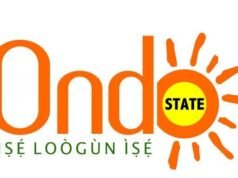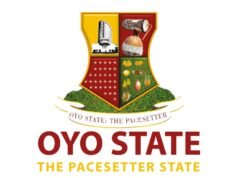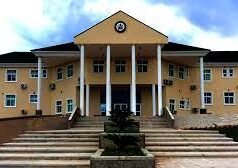The availability of fully-funded scholarships can be a game-changer for students with visual impairments. These scholarships can provide the necessary financial aid to help these students achieve their educational dreams.
In this post, we will be looking at fully funded scholarships designed to provide a pathway to higher education for visually impaired students.
American Council of the Blind (ACB) Scholarship Program
Table of Contents
The American Council of the Blind (ACB) Scholarship Program is a comprehensive initiative that recognizes and rewards the academic accomplishments and community service of visually impaired students.
Eligibility:
- Must be legally blind (defined as best corrected visual acuity of 20/200 or less in the better eye, or a field of vision of 20 degrees or less)
- U.S. citizen or permanent resident
- Enrolled in, or accepted into, an accredited two- or four-year college or university, or a technical or vocational school program
- At least a 3.0 GPA (for most scholarships)
- Full-time student OR part-time student working at least 32 hours per week
Award:
- Scholarships range from $2,000 to $7,500
- Funds can be used for tuition, fees, room and board, and assistive technology
This fully funded program is open to students who are enrolled on a full-time basis in either undergraduate or graduate study programs. The quantity of scholarships presented annually fluctuates depending on the funding available, however, the program generally provides 20 to 30 scholarships each year.
National Federation of the Blind (NFB) Scholarship Program
The National Federation of the Blind (NFB) administers one of the most substantial scholarship programs dedicated to legally blind students in the United States. Each year, this program bestows 30 scholarships, with amounts ranging from $3,000 to $12,000.
Eligibility:
- Must be legally blind in both eyes.
- Must be residing in the United States, D.C., or Puerto Rico.
- Must be 18 years of age by July 3 of the application year.
- Must be pursuing or planning to pursue a full-time, post-secondary course of study in a degree program at a U.S. institution in the fall of the year of application.
- Must participate in person in the entire NFB National Convention and in all of its scheduled scholarship program activities (finalists receive financial assistance to attend the convention).
Awards:
- Several awards are available, each with specific criteria and selection considerations.
- Award amounts vary, with most ranging from $3,000 to $10,000.
- Some awards focus on academic achievement, while others prioritize community service, leadership, or specific fields of study.
Applying:
- Applications open around early January each year.
- The deadline to apply is typically in March.
- The application process consists of submitting personal information, essays, transcripts, letters of recommendation, and proof of legal blindness.
- Finalists participate in an interview at the NFB National Convention.
These grants are offered to outstanding legally blind scholars throughout the country and can be utilized at any accredited higher learning institution within the U.S. Besides the financial support, the NFB also offers a unique opportunity to the scholarship recipients.
Lighthouse Guild Scholarship Program
The Lighthouse Guild Scholarship Program is dedicated to assisting visually impaired students to achieve their academic aspirations by providing financial aid up to $10,000. This monetary assistance can be utilized for either undergraduate or graduate studies at any educational institution in the U.S. that holds accreditation.
Eligibility:
- High School: U.S. citizen or permanent resident, graduating high school senior, accepted into an accredited college or university, legally blind (proof required).
- Graduate: U.S. citizen or permanent resident, enrolled in a graduate program at an accredited university, legally blind (proof required).
Selection Criteria:
- Academic achievement: Strong GPA, transcripts, standardized test scores.
- Merit: Leadership qualities, extracurricular activities, community involvement.
- Personal essay: Outlines how vision loss has impacted your life and educational goals.
However, the Lighthouse Guild goes beyond just offering financial aid. It also ensures its scholarship recipients have access to vital resources and support services that aid in making their college experience more manageable and fulfilling.
Read Also: Fully Funded Scholarships For Left Handed Students
American Foundation for the Blind (AFB) Scholarship Program
The American Foundation for the Blind (AFB) has set up an array of scholarships specifically designed to aid students with visual impairments. These scholarships differ in the financial aid they offer, with amounts spanning from $500 to $3,500.
Eligibility:
- Open to U.S. citizens or permanent residents
- Legally blind or have low vision (definition provided on the website)
- Enrolled in or accepted into an accredited college or university (undergraduate or graduate programs)
- Minimum GPA requirement varies depending on the specific scholarship
Awards:
- Multiple scholarships available with varying amounts (typically ranging from $2,000 to $7,500)
- Funds can be used for tuition, fees, room and board, and assistive technology
With unique qualifying criteria for each scholarship within the AFB program, a diverse group of students have the opportunity to find a scholarship that matches their specific needs and circumstances.
FAQS
Who are students with visual disabilities?
Students with visual disabilities are those who have partial or complete loss of sight, and they often use assistive technology such as Braille readers, screen readers, or enlarged text to complete their schoolwork. Students with visual disabilities may also use guide dogs or other mobility aids to navigate the school environment. In addition to the challenges that come with completing schoolwork, students with visual disabilities may also face challenges with social interaction and participation in extracurricular activities. Despite these challenges, students with visual disabilities are able to succeed with the right supports in place.
Is Babson College need-blind for international students?
No, Babson College is not need-blind for any students, including international students. This means they consider financial need during the admission process when awarding merit scholarships and financial aid packages. However, international students are eligible for merit scholarships based on academic achievement and other factors, regardless of financial need.
Is Colorado College need-blind?
Yes, Colorado College is need-blind for all admitted U.S. citizens and permanent residents. This means financial need is not considered during the admission process, and their financial aid packages are designed to meet the full demonstrated need of admitted students. International students are not eligible for need-blind admission at Colorado College.
What GPA does Colorado require?
Colorado College doesn’t have a set minimum GPA requirement for admission. They consider many factors during the application process, including GPA, standardized test scores (if submitted), essays, extracurricular activities, and letters of recommendation. While a strong GPA can certainly benefit your application, it’s not the sole deciding factor.
Does Colorado College meet full need for international students?
Colorado College does not offer a full-need financial aid program for international students. Instead, the college offers a need-based financial aid program for all admitted students, regardless of their country of origin. This program is based on a combination of family income and assets, and it may also take into account other factors such as the cost of living in the student’s home country.
Conclusion
As we conclude, it’s clear that numerous scholarship programs are devoted to ensuring visually impaired students have the necessary resources to pursue higher education.
The key is to research each scholarship thoroughly and apply to those that best fit the individual’s situation and needs. By doing so, visually impaired students can capitalize on these opportunities and pursue their academic dreams. With resilience, ambition, and the right support, visually impaired students can conquer any challenges they face and emerge successful, both academically and professionally.
Overall, these scholarships serve as a beacon of hope, guiding visually impaired students toward a brighter future filled with possibilities and opportunities. Let’s continue to raise awareness about these scholarship programs and help make higher education more accessible for all, regardless of visual capabilities.









